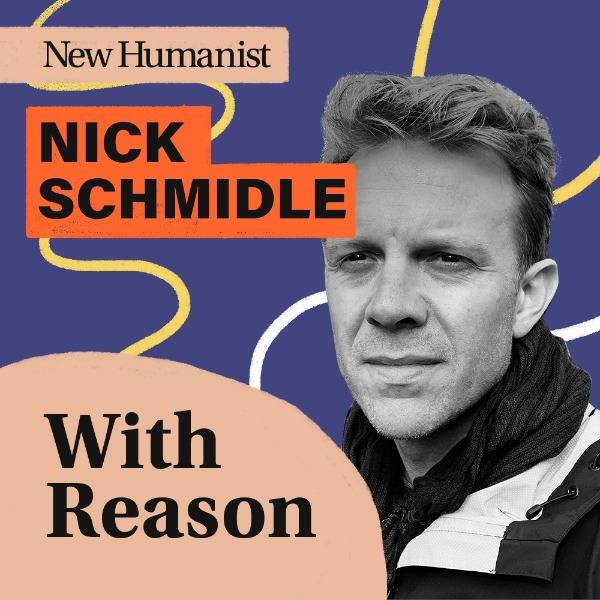
Claire Tomalin was the literary editor at the New Statesman, and then later at the Sunday Times. She then embarked on successful career as a full-time writer. Her first book, "The Life and Death of Mary Wollstonecraft", won the Whitbread First Book Award, and she has since written a number of highly acclaimed, award-winning and bestselling biographies. They include: "Jane Austen: A Life", and "Charles Dickens: A Life". Tomalin's latest book is "The Young H.G. Wells: Changing the World".
As a teenager, at Uppark, Sussex, H.G. Wells had the good fortune of discovering the work of many great writers and thinkers. How important was that formative moment in shaping his artistic and intellectual abilities later on?
The experience of finding those books at Uppark was absolutely crucial in Wells's life. His mother was a servant in a gentry country house there. And when visiting his mother, Wells suddenly found he had access to an extraordinary range of books from the library he found in the servants’ quarters. He discovered the works of Plato, Voltaire, Thomas Paine, and Jonathan Swift. One of the fascinating things about Wells is that he came from poverty. But this formative reading moment opened up his mind to a whole new world of ideas and possibilities.
Was Wells a working class hero?
He knew that he was getting out of the working class. He said to his mother: "If you could make me be a draper's apprentice, then I will stay as a draper's apprentice forever, but if you let me go to school and study at university, I will rise up." And that is what happened.
Wells is often credited as being a kind of father figure for the science fiction genre. Why were books like The Time Machine (1895) and The War of the Worlds (1898) considered so fresh and modern at the time they were published?
They are just marvellous stories that are vividly and plainly well written. Wells also had an extraordinary imagination. He deserves to be regarded as a great, great English storyteller.
Many critics often draw distinctions between Wells's science fiction work and his literary realism. The general consensus seems to be the science fiction was far better. Do you agree?
A book like Joan and Peter (1918), for example, is okay, but it's much more like a conventional English novel, and doesn't approach the thrill of those early [science fiction stories]. Why that happened I cannot say. I suppose Wells just got old and lost his sparkle.
Wells also wrote a great deal of polemical non-fiction. Your biography look at books like Anticipations (1901), where Wells was making a claim to forecast the future in areas like transport, social activities, education, and warfare. And Misery Boots (1907): a political tract advocating socialism. Were these two books his strongest works of non-fiction?
Misery Boots is a wonderful political pamphlet. And Anticipations is absolutely terrific too. I wouldn't be able to say which is the best. They are just all very interesting and impressive. When people like George Bernard Shaw, and Sidney and Beatrice Webb read Wells, they realised how extraordinary he was. Which is why they were so keen to get him into the Fabian Society.
Wells's relationship with the Fabian Society was controversial. Why did he fall out with them?
He was overly ambitious. He wanted to to enlarge The Fabian Society, and he wanted to change it by spending a lot of money. But Beatrice and Sidney Webb [who were early members of the organisation], and many others, realised this was not a realistic scheme. The Fabian Society was very influential. But it wasn't rich. So that was part of the problem. And then Wells had an affair with Amber Reeves, who was a the daughter of William Pember Reeves and Maud Pember Reeves: two prominent members of the Fabian Society. This sexual scandal was regarded as unacceptable.
Wells married twice, first to his cousin, Isabel Mary Wells, before beginning an affair with Amy Catherine Robbins, who he later married. But Wells had many other lovers throughout his life. Could he be cruel in love, or did he just have a very open attitude to relationships and sex?
I think Wells didn't mean to be cruel to the women he was with. But he did have this very powerful attraction to women. He was also absolutely insistent on having sexual freedom. Wells wanted everything. He wanted to have a lovely loyal wife, who could entertain his friends at home. But he also wanted to have a passionate love affairs. Actually, he got most of what he wanted.
Was there one particular romantic affair Wells embarked on that stands out to you as especially passionate or intense?
The affair with the English writer, Rebecca West, was very long drawn out, and probably the most intense affair of Wells's life. That's partially why I stopped the book before that period of his life. It's a whole new chapter, and that's been written about, in depth, by many people. And, of course, West was such a powerful woman herself. But Wells's affair with Amber Reeves was very interesting too. She was this beautiful young student at Cambridge. She really initiated the affair, and asked Wells to make her pregnant. If you read the letters between both of them they are extraordinary. Long afterwards, when she was happily married, she always retained her feelings for him.
Wells's bibliography contains an impressive 3,000 items, including more than 100 books. He was quite a hard worker and extremely prolific with his pen it seems?
At one stage of his writing career Wells was churning out 7,000 words a day. It almost seemed like he had a team of writers working for him. This was an extraordinary side to his working life: how much writing he actually produced. He also had the capacity to do lots of other things. He had an intense energy. As well as writing, he was engaged in all sorts of travel. And, of course, he was engaged in many relationships with many different women.
You've written biographies documenting the lives of writers like Jane Austen, Charles Dickens, and Thomas Hardy. How does Wells's life compare to them? Was it more eventful and interesting?
Well my first biography was on the life of Mary Wollstonecraft. She had a pretty eventful life. So too did Charles Dickens. I've enjoyed writing about Wells, but I'm not sure if his life was more interesting than any of the other writers I've written about. Wells lived through very interesting times. But then so too did those other writers I've written about.
What is the secret to writing a great biography?
Each biography one embarks on is like forming a close friendship, or close relationship, and trying to be as understanding and tolerant as you can, so you can then investigate as much as you can into that person's life. Of course, you can't catch everything. Nobody can catch everything about another person's life.

